View all filters
Clear
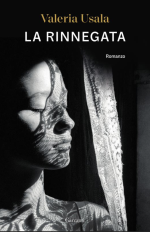
Odrzucona
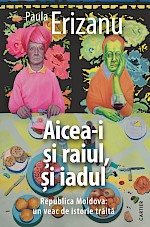
Hele, holky (It’s Both Heaven and Hell Here. Moldova: a Century of Lived History)
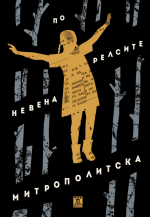
По шинама
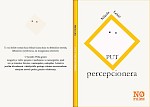
Flori de lotus care se închid (când intri în ele) (Drumul celui care percepe)
Il tempo è un cerchio
O tempo é um circo
Barbari în Imperiul Roman
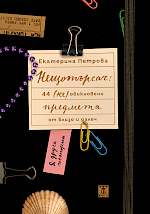
Poszukiwaczka rzeczy: 44 (nie)zwyczajnе przedmioty z bliska i z daleka
Tak jak sugeruje podtytuł, książka Poszukiwaczka rzeczy przedstawia historie 44 przedmiotów z bliska i z daleka. W środku znajdziemy zaskakujące, różnorodne i uporządkowane tematycznie znaleziska z całego świata: buty z Bhutanu, płytki chodnikowe z Barcelony według projektu Gaudiego, szklanki do wina z kraju Basków, broszkę w kształcie serca z Sarajewa, espadryle z Pirenejów, skarabeusze ze Starożytnego Egiptu, pudełko ze śmieciami z Nowego Jorku, kawałek pomarańczowego materiału „Dryfujących pomostów” z jeziora Iseo, słoweńskiego dzwoniącego smoka, mapę Wschodniego Berlina i wiele innych. Opowiadając historie konkretnych przedmiotów, Ekaterina Petrowa w rzeczywistości opowiada o miejscach, z których one pochodzą – o Küstendorfie i Katmandu, o Lublanie i Luizjanie, o Belwederze i Bilbao, o Selçuku i Central Parku – jednocześnie umieszcza je w szerszym językowym, kulturowym, historycznym, antropologicznym i geograficznym kontekście. Teksty są pomysłową mieszanką dzienników podróży, esejów i opowiadań, uważnie przeanalizowane i poprzetykane ciekawostkami, ale przełamane subiektywnym spojrzeniem autorki, jak i jej osobistą biografią podróżniczki, tłumaczki i poszukiwaczki rzeczy. Artystycznie skomponowana przez Ljubę Chalewą, jedną z najsłynniejszych bułgarskich ilustratorek, szata graficzna książki w cudowny i pełen poczucia humoru sposób oddaje ducha i nastrój historii. Dzięki temu sama książka również staje się pięknym i niosącym przyjemność przedmiotem – do czytania i powracania, do posiadania i obdarowywania.
Como pode medir-se o tempo?
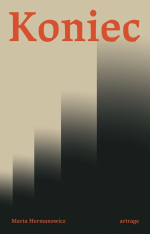
В края

In The End (Koniec)
Metaphysical and blasphemous novel about the tragedy of war that never meets a clean end with a peace treaty. The war goes on, residing within its victims who carry it from one generation to the next.
Malwina, an exceptionally sensitive girl, experiences her grandmother’s wartime memories in her dreams. This makes her exist in two parallel realities at once: the 1940s Eastern borderlands and Siberia along the 1990s Poland. Those realities seep and bleed through one another, making Malwina a catcher of her survivor grandmother’s dreams, or perhaps a dybbuk who gives voice to the dead. To Malwina, the war persists, haunting her day and night alike. Poignant and piercing, Koniec is an impressively well-crafted prose.

Oh, ragazze (It’s Both Heaven and Hell Here. Moldova: a Century of Lived History)

По рейках

Fiori di loto che si chiudono (quando ci si entra) (La via del perceptionist)

Гей, дівчата (It’s Both Heaven and Hell Here. Moldova: a Century of Lived History)
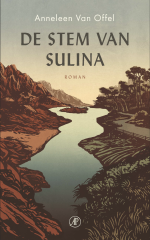
La voce di Sulina

Flores de loto que se cierran (cuando en ellas se entra) (Put percepcionera )
Het Romeinse Rijk in 100 data

Encuentracosas: 44 objetos (in)usuales de cerca y lejos
Como sugiere su subtítulo, el libro Encuentracosas contiene historias sobre 44 objetos de cerca y lejos. La curiosa y variada selección, ordenada temáticamente, incluye sorprendentes hallazgos de todo el mundo: Botas de Bután, losetas de Barcelona diseñadas por Gaudí, copas de vino del País Vasco, un broche en forma de corazón de Sarajevo, alpargatas de los Pirineos, escarabajos del antiguo Egipto, un cubo de basura de Nueva York, un trozo de tela naranja de los muelles flotantes del lago Iseo, una campana de dragón eslovena, un mapa de Berlín del Este y mucho más. Al narrar las historias de estos objetos concretos, Ekaterina Petrova cuenta en realidad las historias de los lugares de los que proceden —Kustendorf y Katmandú, Liubliana y Luisiana, Belvedere y Bilbao, Selcuk y Central Park—, situándolos al mismo tiempo en un contexto lingüístico, cultural, histórico, antropológico o geográfico más amplio. Los textos, una ingeniosa mezcla entre cuaderno de viaje, ensayo y relato corto, están cuidadosamente elaborados y repletos de curiosidades, pero refractados a través de la perspectiva subjetiva de la autora, así como de su biografía personal como viajera, traductora y encuentracosas. La maquetación del libro, realizada con el ojo estético de Lyuba Haleva, una de las ilustradoras búlgaras contemporáneas más destacadas, capta de forma espléndida y humorística el espíritu y el carácter de los relatos. De esta forma, el propio libro se convierte en un objeto bello, placentero y alegre, para leer y releer; un libro que poseer y regalar.